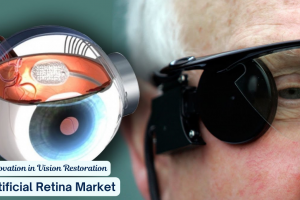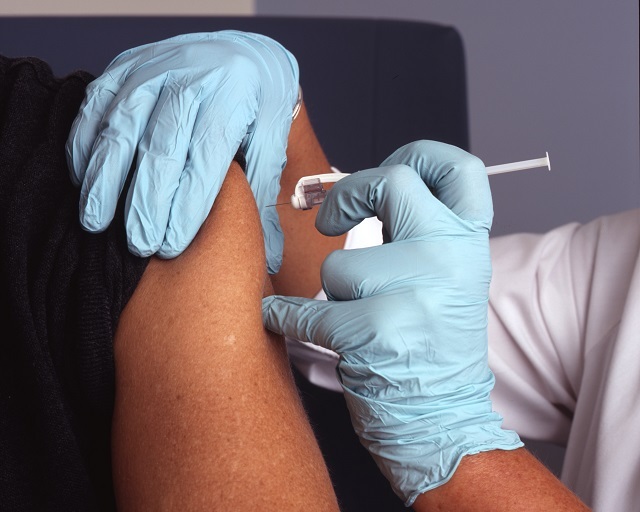Introduction
Personalized cancer vaccines can provide more personalized treatment for cancer patients and improve the overall survival rates for those who suffer from this disease. Neoantigen-based personalized cancer vaccines are a type of vaccine that specifically targets neoantigens, which are unique proteins found on the surface of cancer cells. These vaccines can help to destroy cancer cells while leaving healthy cells unharmed.
Vaccines have been used to prevent infectious diseases since the time of ancient Greece. However, the ability of such agents to elicit and amplify antigen-specific immune responses has long been recognized as a potentially valuable tool for treating cancer. Early therapeutic vaccination strategies focused on self-antigens abnormally expressed or overexpressed in tumours, termed tumor-associated antigens (TAAs), were largely unsuccessful in generating clinically effective antitumour immune responses. This may be because tumour-specific T cells are subject to central and/or peripheral tolerance1. This means that these TAAs can also be expressed in nonmalignant tissues, which raises the risk of vaccine-induced autoimmune toxicities1. Thus, these early studies highlighted the lack of tumour specificity and poor immunogenicity as fundamental issues to overcome in developing cancer vaccines.
Mutations in tumor cells can generate novel epitopes of self-antigens. These neoepitopes or neoantigens are referred to as “mutational tumor antigens.” Next-generation sequencing has provided opportunities to identify these tumour-specific mutations in individual patients and explore therapies that target the mutated proteins. Algorithms have been developed for the prediction of MHC class I (MHC I)-binding epitopes, paving the way for personalized therapeutic cancer vaccines that are tailored to each patient’s tumor.
Key points
- Clinical trials have shown that personalized therapeutic cancer vaccines based on neoantigens are feasible, safe and immunogenic in patients with melanoma and glioblastoma.
- Researchers are testing different vaccine formats and delivery strategies in clinical studies involving patients with various tumour types.
- Further investigation of the characteristics, abilities and long-term memory potential of vaccine-induced neoantigen-specific CD4+ and CD8+ T cells is warranted to improve understanding of their therapeutic activity and optimize vaccination strategies.
- As researchers continue to develop more sophisticated methods for identifying immunogenic neoantigens that can be recognized by CD8+ T cells, algorithms are also being created that can more accurately predict neoepitopes for CD4+ T cells. This ongoing research is essential for improving cancer immunotherapy and tailored cancer treatments.
- Further exploration of innovative vaccine delivery platforms and the most effective timing of combinatorial therapies should be undertaken to reduce costs and time delays, and increase clinical efficacy.
Neoantigens and antitumour immunity
Neoantigen-based personalized cancer vaccines are gaining ground as a promising means of cancer immunotherapy. In 2009, a team of researchers at the University of Pennsylvania discovered that certain neoantigens (proteins found on the surface of cancer cells) can stimulate an immune response in healthy individuals. This research has led to the development of neoantigen-based personalized cancer vaccines, which use patient’s own tumor cells as the source of immunization.
The benefits of neoantigen-based personalized cancer vaccines over traditional chemotherapy or radiation therapy are manifold. First and foremost, these therapies are tailored to each individual patient, which minimizesthe potential for side effects. Additionally, neoantigen-based cancer vaccines are relatively easy and inexpensive to produce, making them attractive candidates for widespread use in the future.
The future of neoantigen-based cancer vaccines
Cancer vaccines are a growing area of research and development. One promising approach is neoantigen-based vaccines. Neoantigens are proteins that are specific to cancer cells, and they can be used to create personalized cancer vaccines.
One study showed that neoantigen-based cancer vaccines could help treat various types of cancer. The vaccine worked by training the immune system to attack the cancer cells. In clinical trials, the vaccine was able to significantly reduce the size of tumors in mice.
Finding the right neoantigens for each patient is key to success with neoantigen-based cancer vaccines. This is a challenging task, but it may be possible in the future. Researchers are also exploring other ways to create personalized cancer vaccines, including using genetic sequencing or artificial intelligence techniques.
Neoantigen-Based Personalized Cancer Therapeutic
Neoantigen vaccines are a promising new approach to personalized cancer therapy. These vaccines use tumor neoantigens as targets, and can trigger an immune response that destroys the tumor. Several neoantigen vaccine trials are currently underway, and researchers are optimistic about their potential.
One of the earliest neoantigen vaccine trials is underway in collaboration between the University of Pennsylvania and Novartis. This trial is testing two different neoantigen vaccines against ovarian cancer. The first vaccine uses a combination of three tumor neoantigens from different types of ovarian cancer, while the second uses only one neoantigen from ovarian cancer. Both vaccines have shown encouraging results in pre-clinical studies, and the trial is currently enrolling patients.
The first vaccine uses a combination of four tumor neoantigens from different types of pancreatic cancer, while the second uses only one tumor neo antigen from pancreatic cancer. Both vaccines have shown encouraging results in pre-clinical studies, and the trial is currently enrolling patients.
Market Size of Neoantigen-Based Personalized Cancer Therapeutic Vaccines
According to a new report, the market size of neoantigen-based personalized cancer therapeutics vaccines is expected to paced up by 2028. Neoantigen-based personalized cancer therapeutics vaccines are designed to help the body’s immune system fight cancer by targeting specific tumor antigens. These vaccines can help reduce the risk of developing cancer in the future, and have shown promising results in clinical trials.
Emerging vaccines for Neoantigen-Based Personalized Cancer Therapeutic
The potential of personalized cancer therapy is vast, as it can provide greater efficacy and specificity for treating patients. One neoantigen-based vaccine approach is to use patient samples to create customized vaccines that can specifically target and attack the patient’s neoantigens. In a recent study, a neoantigen-based vaccine was shown to be effective in preventing tumor growth in mice. The research team focused on using patient blood samples to create the vaccine, as this allows for more accurate targeting. They found that when they used blood samples from cancer patients, the vaccine was much more effective at preventing tumor growth than when using mouse blood samples. This suggests that neoantigen-based personalized cancer vaccines may be a promising strategy for fighting cancer.
Top 10 players/companies in the Neoantigen-Based Personalized Cancer Therapeutic Vaccines market
There is an increasing demand for personalized cancer vaccines as the technology improves and more people are diagnosed with cancer. Neoantigen-based personalized cancer vaccines are among the most promising and novel types of cancer vaccines.
Several top players in the Neoantigen-Based Personalized Cancer Therapeutic Vaccines market are focusing on this area. These companies are working on developing neoantigen-based personalized cancer vaccines that can target specific types of cancer.
Some of the leading players in the Neoantigen-Based Personalized Cancer Therapeutic Vaccines market include NEC Corporation, BrightPath therapeutics, CUREVAC N.V., Geneos Therapeutics, Vaccibody, Transgene, Neon Therapeutic, Genocea Biosciences, Moderna, Advaxis, AstraZeneca, Gritstone Oncology, Inc., Incyte Corporation, Hangzhou Neoantigen Therapeutics, and Frame Pharmaceuticals.
Major Driving Factors for the Neoantigen-Based Personalized Cancer Therapeutic Vaccines Market
The major factors driving the neoantigen-based personalized cancer therapeutic vaccine market are increasing awareness of neoantigens as potential targets for cancer therapy, increasing cancer incidence and increasing emphasis on personalized medicine.
Increasing awareness of neoantigens as potential targets for cancer therapy is the major factor driving the neoantigen-based personalized cancer therapeutic vaccine market. Neoantigens are proteins found on the surface of some cancer cells and are recognized by the immune system as potential targets for an attack. The increasing incidence of cancer is another major driver of the neoantigen-based personalized cancer therapeutic vaccine market. Cancer is a complex disease that can be caused by a variety of factors, including environmental exposures, lifestyle choices and genetics. As more people contract cancer, healthcare providers increasingly recognize the need for novel treatments that address specific aspects of the disease. The growing emphasis on personalized medicine is also a major driver of the neoantigen-based personalized cancer therapeutic vaccine market. Personalized medicine is a healthcare approach that takes into account an individual’s unique genetic makeup and health history to determine which treatments are most effective for them. This approach has led to the development of neoantigen-based personalized cancer therapeutic vaccines, which are designed to specifically target the cancer cells that particular individuals are likely to encounter.
Region Dominated the World Neoantigen-Based Personalized Cancer Therapeutic Vaccines Market
The regions that dominated the world neoantigen-based personalized cancer therapeutic vaccine market are North America (US, Canada), Europe (France, Germany, Italy), Asia-Pacific (China, Japan), and South America (Brazil). In terms of number of registered neoantigen-based personalized cancer therapeutic vaccines, North America (US, Canada) held the largest market share in 2017 with six registrations. Europe (France, Germany, Italy) was second with four registrations. Asia-Pacific (China, Japan) followed with three registrations. South America (Brazil) had one registration.
The following are some key findings of the study:
– Neoantigen-based personalized cancer therapeutic vaccines are likely to have a major impact on improving patient outcomes
–North America (US, Canada) was the largest market for neoantigen-based personalized cancer therapeutic vaccines in 2017
– The Asia-Pacific (China, Japan) region is expected to grow rapidly in the future
– There is a need for better understanding of the clinical benefits of neoantigen-based personalized cancer therapeutic vaccines
– Regulatory hurdles are likely to be a major challenge for neoantigen-based personalized cancer therapeutic vaccines.







